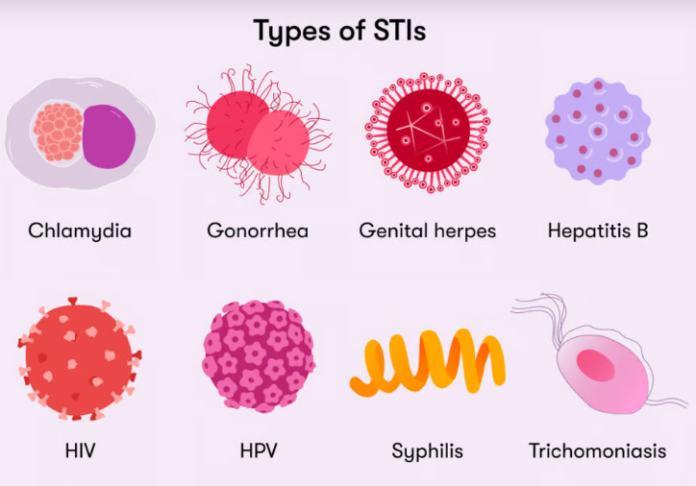Sexually transmitted infections (STIs) are a global health concern, with a particularly significant impact in Africa. Worldwide, over one million curable STIs are contracted daily among adults aged 15-49.
In Africa, the situation is even more pressing, with the continent bearing a disproportionate burden of these infections. According to the World Health Organization, sub-Saharan Africa accounts for nearly half of all new STI cases globally, despite representing only about 14% of the world’s population.
A recent study published in the Journal of Sex Research highlights a troubling trend that spans across cultures and continents: only about half of people disclose or believe they should disclose an STI to a partner before sexual activity. This lack of disclosure has serious implications for public health and personal relationships, particularly in regions where STI rates are high.
Why people stay silent
The reasons for not disclosing STIs are complex and often rooted in fear and stigma. In many African communities, where traditional values and cultural taboos around sex persist, discussing STIs can be especially challenging. Many worry about how their partner will respond, fearing rejection or judgment.
Some view STIs as a personal matter, especially in casual encounters, and prefer to keep it private. Misconceptions about transmission also play a role, with some believing there’s no risk if they’re not showing symptoms. Young people are particularly vulnerable, as they are often less likely to disclose than older individuals.
The impact of non-disclosure
Failing to disclose an STI can have severe consequences, especially in regions with limited healthcare access. Partners may unknowingly contract and spread STIs, perpetuating the cycle of infection. Unaware partners might not seek timely testing or treatment, potentially leading to long-term health issues.
In Africa, where HIV rates remain high in many countries, non-disclosure of STI status can have life-altering consequences. Additionally, the emotional strain of non-disclosure can cause anxiety and lower sexual satisfaction, affecting relationships and mental health.
Why some choose to disclose
Despite the challenges, many people do choose to disclose their STI status. They often value honesty and see it as a moral obligation in their relationship. Protecting their partner’s health is another key motivation, especially in regions where untreated STIs can lead to severe complications. For some, disclosure is a way to seek emotional support from their partner, strengthening their bond through open communication.
Making disclosure easier
While talking about STIs can be uncomfortable, particularly in more conservative societies, resources are becoming available to help. In some African countries, anonymous notification services allow people to inform partners via text or email without direct contact.
Comprehensive sex education programs that normalize discussions about STIs are gradually being implemented in schools and communities. Public health campaigns aimed at raising awareness and promoting testing are also gaining traction across the continent.
The path forward
Tackling the stigma around STIs is crucial for public health in Africa and worldwide. This involves normalizing STI screening and discussions about sexual health in everyday life. Providing non-judgmental education that emphasizes the commonality of STIs and the simplicity of testing and treatment is essential.
It’s also important to promote open communication about sexual health across all age groups, respecting cultural sensitivities while addressing this critical health issue.
By addressing these challenges head-on, we can create a more open, honest, and health-conscious approach to sexual relationships in Africa and beyond. Remember, knowledge and communication are key to maintaining not just your own sexual health, but that of your partners and the wider community.
As we work to break down the barriers of stigma and shame, we pave the way for better health outcomes and more fulfilling relationships for everyone.


